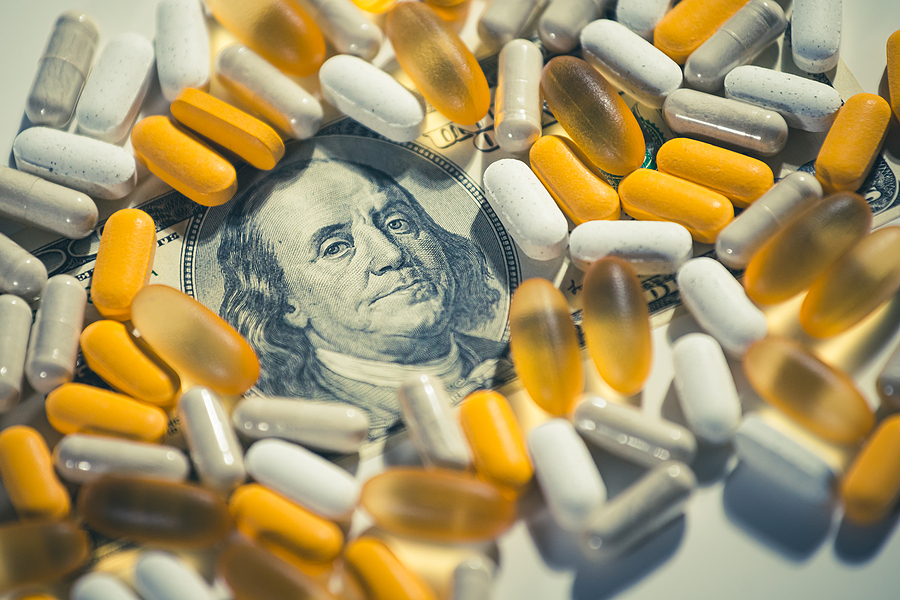The Trump administration is conducting an investigation that could determine whether millions of Americans can get the medicines they need — or whether we trigger the next national drug shortage.
Acting under the authority of Section 232 of the Trade Expansion Act, the Department of Commerce is examining whether undue reliance on imported medicines and pharmaceutical ingredients poses a national security risk to Americans.
If Commerce’s investigation finds a threat, President Donald Trump could impose steep tariffs on pharmaceutical imports — a move intended to encourage more domestic production. That may make strategic sense with regard to China, a strategic competitor that has used critical exports as political leverage against U.S. interests.
But there’s a world of difference between reducing dependence on China and breaking up relationships with reliable partners. Imposing tariffs on trusted allies like Europe, Japan, and South Korea would backfire — driving up costs, disrupting supply chains, and triggering dangerous shortages of essential medicines.
Trump recently signaled that pharmaceutical tariffs could start small but escalate sharply — potentially hitting 15 percent or even 250 percent within 18 months. In some industries, tariffs may shift production home. But medicines aren’t interchangeable industrial goods. They are highly regulated, complex products that often rely on specialized components made in select locations. Tariffs on our allies would set off a chain reaction of shortages to our detriment.
Europe, Japan, and South Korea supply $137 billion worth of pharmaceutical products to the United States each year. These medicines include vital treatments like Humira and Rinvoq for rheumatoid arthritis from Germany and Ireland, the psoriasis drug Stelara from Ireland and the Netherlands, and the diabetes and weight-loss treatments Ozempic and Wegovy from Denmark. South Korea provides Leclaza — approved as a first-line treatment for certain forms of advanced lung cancer — while Japan supplies Abilify, a long-acting injectable for schizophrenia and bipolar I disorder.
Even drugs manufactured here often depend on critical components from allies. These range from stabilizers that allow sensitive biologics to travel without losing potency, absorption agents that make pills effective in the body, and active pharmaceutical ingredients that are the backbone of everything from cancer therapies to antibiotics. Roughly one-third of all APIs used in American medicines come from Europe alone.
If those pharmaceutical imports are suddenly made prohibitively expensive by tariffs, there would be no immediate substitute — especially for innovative, single-source medicines. Building new facilities to manufacture highly regulated ingredients and finished medicines can take years and hundreds of millions of dollars. The administration is rightly considering deregulation that would help to mitigate those costs and make domestic manufacturing more economical.
In the meantime, manufacturers would face sharply higher costs — which they would either pass on to patients or absorb at the expense of investment in new production. Shortages would inevitably follow.
And shortages wouldn’t just stem from price. Tariffs can trigger customs delays for temperature-sensitive biologics, create valuation disputes, and force re-papering of contracts — delays that can spoil shipments or cut into already short expiration windows, leaving wholesalers and hospitals with less stock on hand.
Tariffs also invite retaliation via export authorization requirements, inspections slow-rolled at ports, or outright export restrictions on critical inputs such as vials, filters, and reagents. The result is thinned inventories in the United States and diversion of supply to tariff-free markets.
America’s drug manufacturing base is enviable, but shifting production of complex pharmaceutical products entirely onshore is neither simple nor necessary. Redundancy is resiliency. Partnerships with key allies have a role to play in making American industry stronger and more sustainable, and supplies of medicine more secure.
We’ve seen just how fragile pharmaceutical supply chains can be. When a single U.S. plant making sterile injectables shut down for safety reasons in 2021, hospitals across the country scrambled for alternatives. Just two years later, Hurricane Helene damaged a North Carolina facility that produced nearly 60 percent of the nation’s IV saline supply. The disruption forced hospitals to delay procedures and ration fluids until production recovered.
Rather than introduce new shocks to thin supply chains, we should build on the momentum already underway. The United States has made real strides in bolstering domestic drug production — with companies investing $150 billion a year in research and expanding manufacturing capacity.
Continued progress depends on a stable, competitive environment. Tariffs on imports from trusted allies would undermine that, making the United States a more expensive and less predictable place to invest. The smarter path is to streamline approvals for new domestic plants, enforce trade rules against unfair practices abroad, and work with allies to maintain emergency stockpiles.
If the goal is national security, targeted measures to reduce reliance on China — a strategic rival willing to weaponize trade — may be prudent. Punishing allies is simply counterproductive. Broad tariffs on pharmaceutical imports from trusted partners will only weaken supply chains, undermine U.S. manufacturers, and force patients to pay the price through higher costs and reduced access.
The Department of Commerce should proceed with caution as it concludes its investigation — or risk the very shortages we’re trying to prevent.


